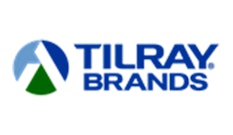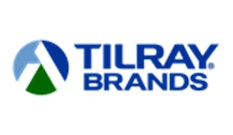
Green Box and Green Hop, two Portland-based, minority-owned cannabis businesses, each received a $30,000 grant from a fund established by the city and administered by the NuLeaf Project to help grow their companies.
Portland set aside $150,000 from cannabis tax revenues to reinvest in minority-owned cannabis businesses operated by people from the communities disproportionately impacted by prohibition and the war on drugs.
Green Box and Green Hop are the first two businesses to receive grants, and NuLeaf is continuing to accept applications from eligible cannabis businesses, which must be at least 51-percent minority-owned.
Green Box provides a curated cannabis subscription delivery box that launched in 2017, and has started to offer on-demand delivery, as well. The company features locally owned brands and organic flower, and donates 10 percent of its profits to local Portland charities, founder Adrian Wayman told Cannabis Dispensary.
“We’re excited about the growth that we’ve been having and are looking forward to an exciting 2019,” he said.
One of Green Box’s challenges has been working capital, he added, and with the grant, Wayman—who currently operates the company by himself—will be able to expand his team and improve some aspects of the business.
“One of the biggest things we’ll be able to do is make some major improvements to our website, as far as improving the user interface and just getting rid of some friction,” he said. “The website has been built entirely by myself, and I am no developer, no coder, or anything like that. I’m doing the best I can, and so now we can hire some professionals to dial in the website.”
“I got the email, and I burst into tears."
- Green Box founder Adrian Wayman
Wayman also handles all the company’s deliveries, marketing and sales, and is looking forward to hiring a content and creative director, followed by a fulfillment team to package orders and make deliveries. He will also use the funds to continue expanding his product range to include more vape cartridges and edibles, among other items.
“We’re a small shop, so we don’t really have a big menu, but that’s slowly changing,” Wayman said.
Packaging is very expensive, he added, and with the grant, he will be able to invest in larger quantities to cut packaging costs by more than half.
“I work so hard to not take any outside investment,” Wayman said. “We’ve considered it, we’ve reached out to people, but we haven’t. It means a lot to be able to get this grant, particularly what it was for, to help the network impacted by the war on drugs.”
About 10 years ago, Wayman was arrested on drug charges, subsequently serving jail time and being put on probation.
“How many job opportunities or opportunities in general did I miss out on because I have a record?” he said. “And now, our city, our community, is trying to fix that wrong. I hope we set a good example for other jurisdictions and other municipalities. … Why not reinvest in someone who you’ve potentially caused some setbacks for in their life?”
Green Hop, the other grant recipient, is a North Portland dispensary established in June 2018 by Karanja Crews and Nicole Kennedy. It operates the Green Hop Academy, an internship program built with the help of the Portland Opportunities Industrialization Center (POIC). The academy teaches young people of legal cannabis-consuming age the skills needed to help them get jobs in the industry, from lab and production training to how to be a budtender.
“We [African Americans] were the ones most disproportionately impacted—through arrests, through prison sentences, the whole nine yards,” Crews told Cannabis Dispensary in an October 2018 feature. “[Now] you don’t see a lot of us able to have the opportunity to participate in the industry, to have the backing to create something or start something like this.”
With the help of the grants, Green Hop and Green Box have the backing they need to grow their own businesses, as well as help others succeed in the emerging industry.
The NuLeaf Project was founded by cannabis business veteran and community advocates Jesce Horton and Jeannette Ward Horton, who joined forces with the City of Portland to launch the grant program. Jesce originally founded the Minority Cannabis Business Association (MCBA) and met Jeannette when she joined the organization’s board.
Before stepping down from their MCBA positions to focus on their businesses and new family, the Hortons worked with the City of Portland to help determine where the city’s cannabis tax revenue should be allocated. With the passing of Measure 91 and the legalization of recreational marijuana in the state, Oregon could place a 17-percent tax on cannabis retailers, and municipalities were allowed to levy an additional tax, if desired. Portland decided to add a three-percent tax and worked with the city commissioners and mayor to decide how to best spend the money.
“Through our work and our strong stance … with our policy group, MCBA, [we thought] one of the first buckets, if not the first bucket, for cannabis tax allocations should be toward helping communities that have been disproportionately targeted by cannabis prohibition, either through assisting their business development in the industry, helping with expungements, community building, education, job assistance, whatever it may be,” Jesce said. “So, we submitted that language to the City of Portland and the commissioners, and they ultimately accepted it and they put it on the ballot in 2016 for the city to vote on.”
Portland residents approved the initiative and a third of the cannabis tax revenue was allocated to helping these disproportionately targeted communities. Around the same time, the Hortons founded the NuLeaf Project to help provide business assistance to minority-owned cannabis companies and those looking for careers in the industry. When Portland decided to give the tax money allocated to minority-owned businesses to community organizations to distribute, rather than to the business owners themselves, NuLeaf was given the money to distribute within the community.
NuLeaf’s board, which consists of prominent community members such as ex-NBA player Cliff Robinson and Pamela Weatherspoon, a former member of the Oregon Liquor Control Commission (OLCC), helps the organization select its grant recipients. The board primarily examines the level of the business, how it could be helped with the funds and the return on investment.
“We look at that mainly by the type of projects that the company wants to undertake and, utilizing our experts, determine if that would really help them to grow their business pretty quickly,” Jesce said.
Wayman discovered the grants on social media, he said, and submitted an application, which included an executive summary of the business, a marketing plan and a brief description about how the company planned to spend the funds, among other things.
“We had to show a measurable amount of return on investment, just to make sure we’re spending the funds on something that can actually be measured and calculated,” he said.
About two weeks after submitting the application, Wayman was notified that he had been selected to move on to the next step, which was a presentation to NuLeaf’s board that he compares to Shark Tank. A few weeks later, Wayman got email confirmation that he had been selected as a grant recipient.
“I got the email, and I burst into tears,” he said.
The NuLeaf Project has an open application, which is available online, and has started raising money from other organizations, in addition to Portland tax revenue, to expand the grant program to other cities and states.
The NuLeaf Project also offers an industry internship program, as well as an upscaling program, which teaches cannabis business owners and industry job seekers necessary skills such as fundraising, how to scale a business, legal assistance and more. The organization has partnered with the Oregon Entrepreneurs Network to develop a Cannabis Business Basics course, which brings in experts in different business areas to teach courses on how to raise money, how to structure a business that is in a good position to handle tax code 280E and more.
Traditionally, cannabis business owners have relied on personal networks of friends and family to raise capital, since many larger financial institutions still shy away from the federally illegal industry. This coupled with expensive licensing fees and the high cost of building a cultivation facility or dispensary have left many operators strapped for cash.
“If we can just find ways to get more capital into very capable and passionate business owners’ hands, then I think we can really achieve a lot of the goals of the industry,” Jesce said.
While the NuLeaf Project’s programs are largely based on removing barriers of entry to those most disproportionately affected by cannabis prohibition, they also strive to provide economic benefits to the community, he added.
“We’ll never get as large as we can, we’ll never provide as much good and there won’t be as much tax money if we don’t make sure we develop the cannabis industry in an innovative way that addresses the needs of the community and … is welcome to more and more people,” Jesce said. “If we don’t find ways to bring more diverse minds to the table, then we won’t be able to grow those opportunities from an economic standpoint. I really think it’s a strong moral argument, and one that I think everyone understands, though we need to more understand the economic argument and the ability to even grow those tax dollars by ensuring that the industry is built in a diverse way, and not just building another industry, but also building a better industry, and we think this is a key way to do it."























